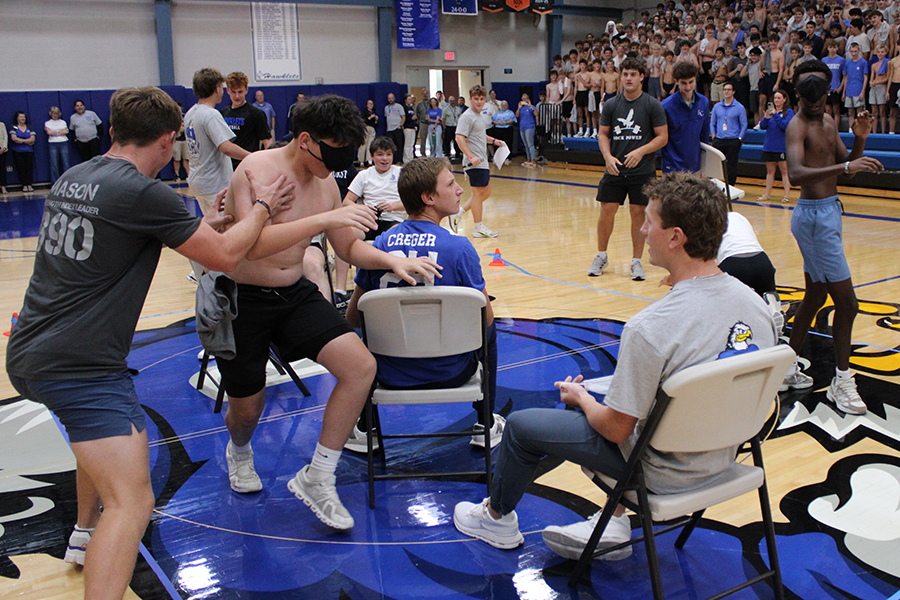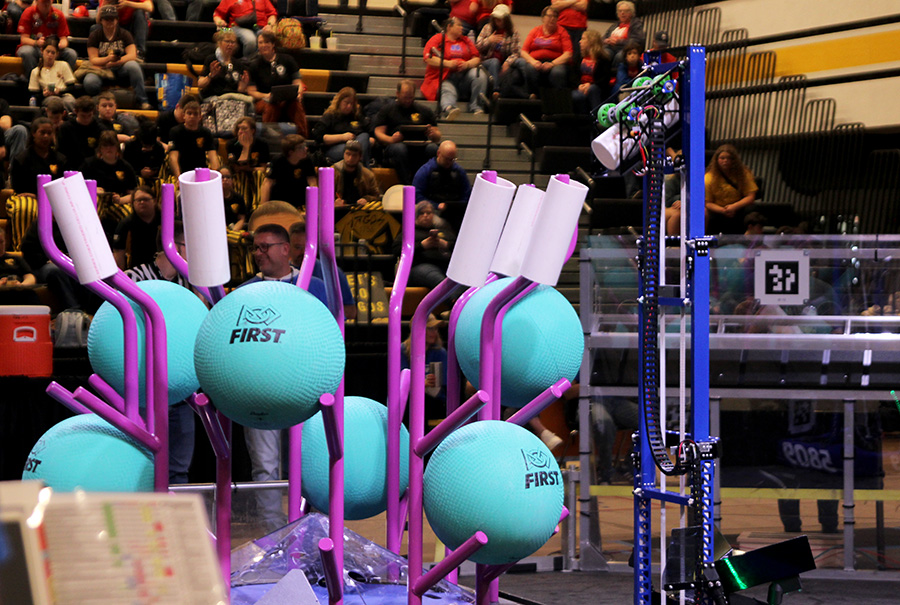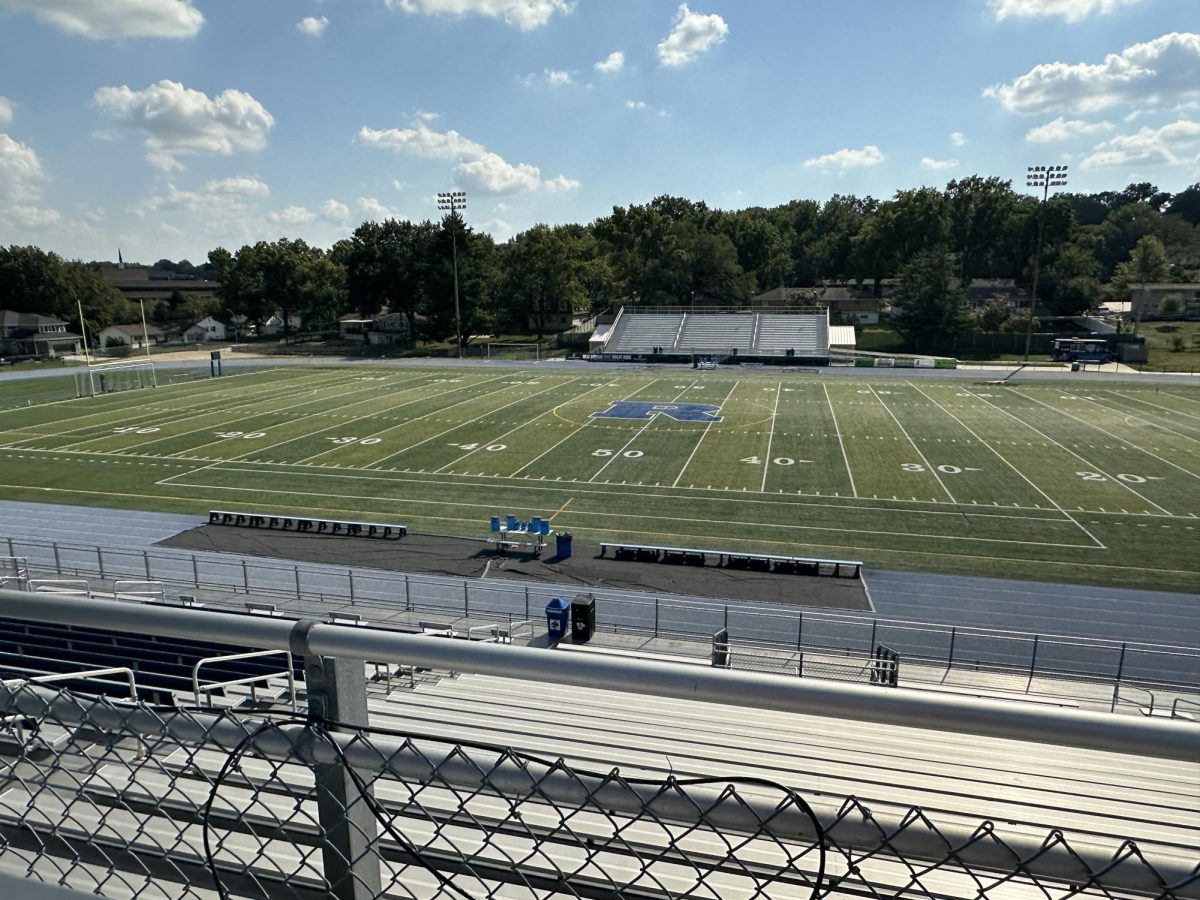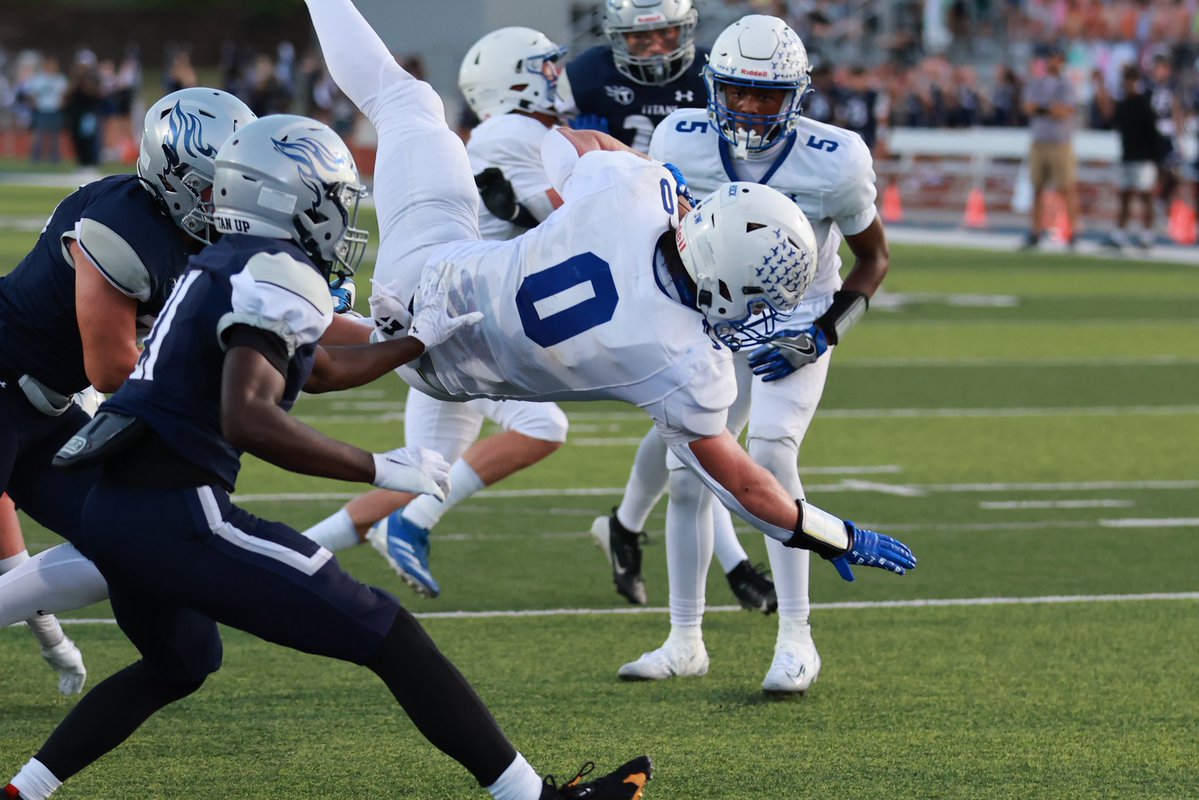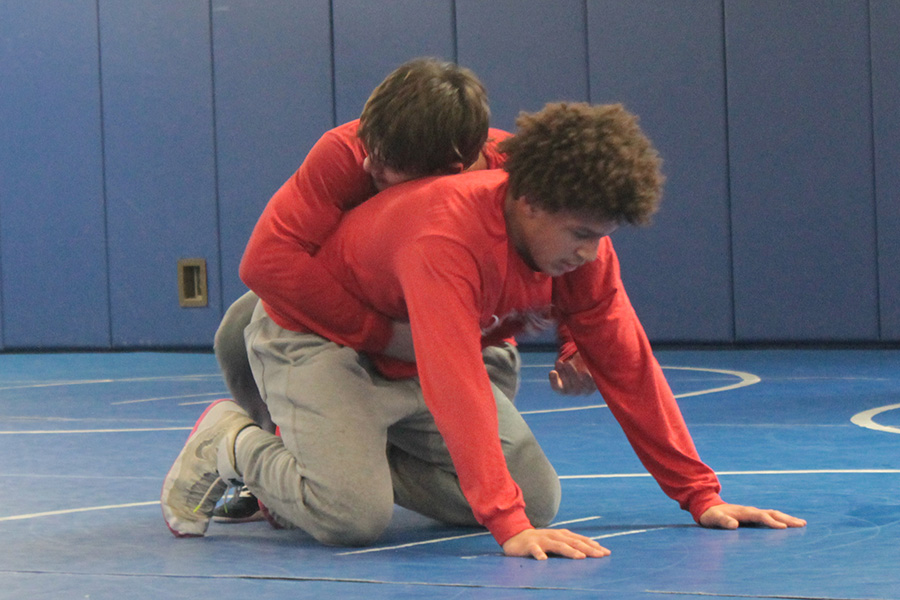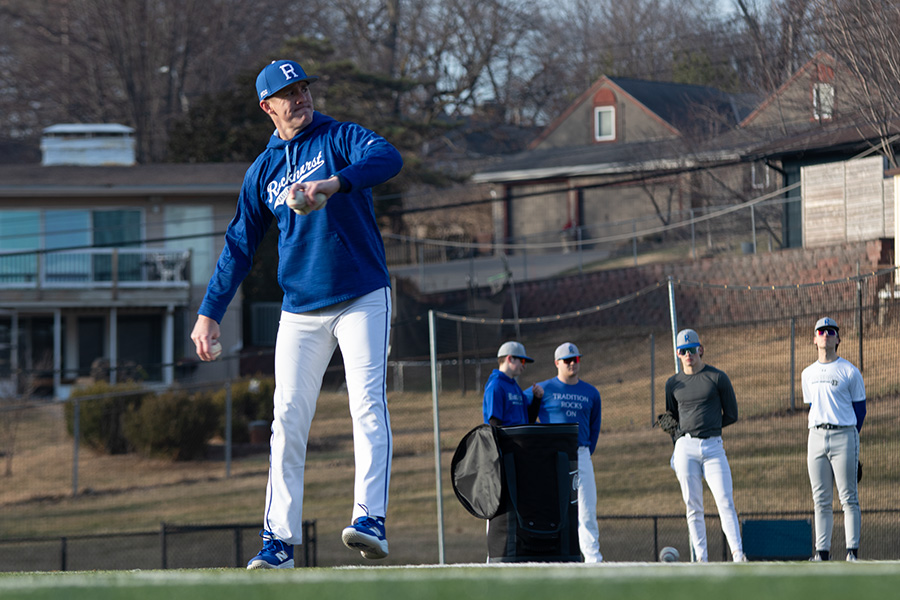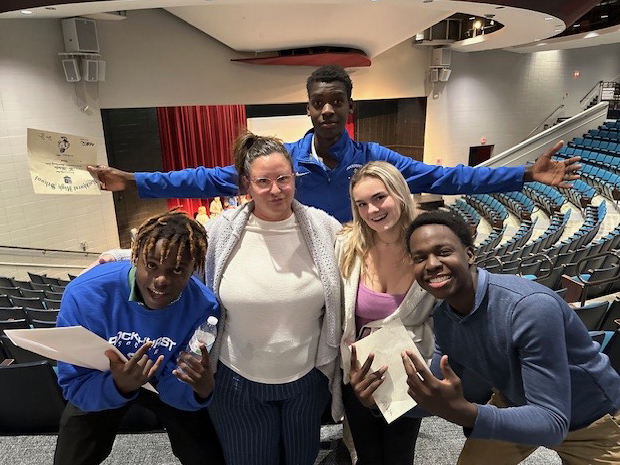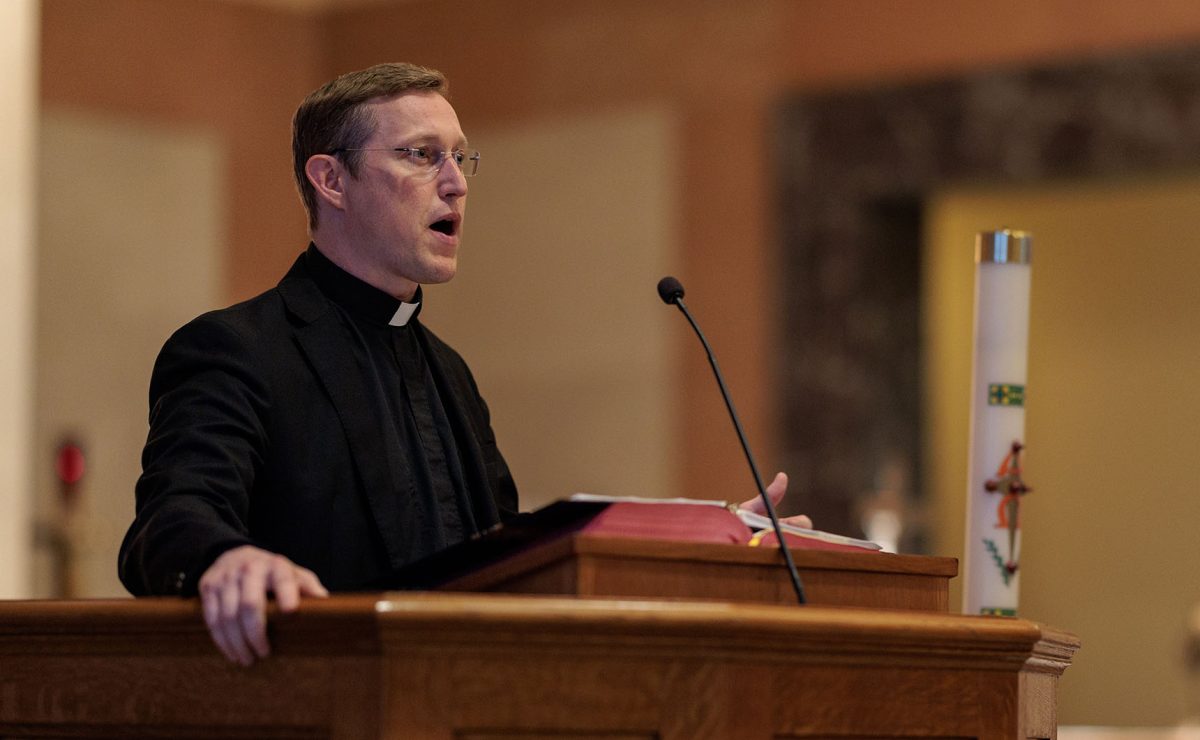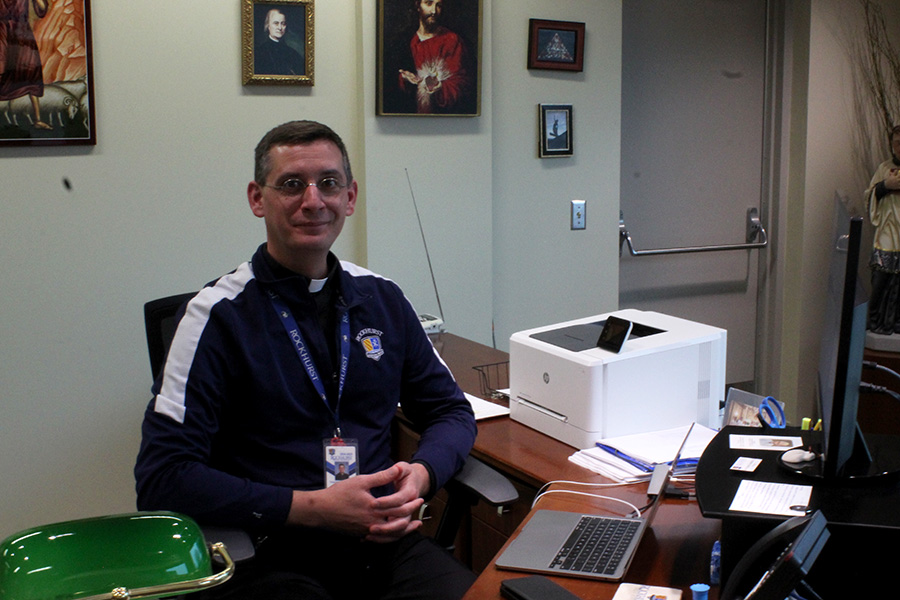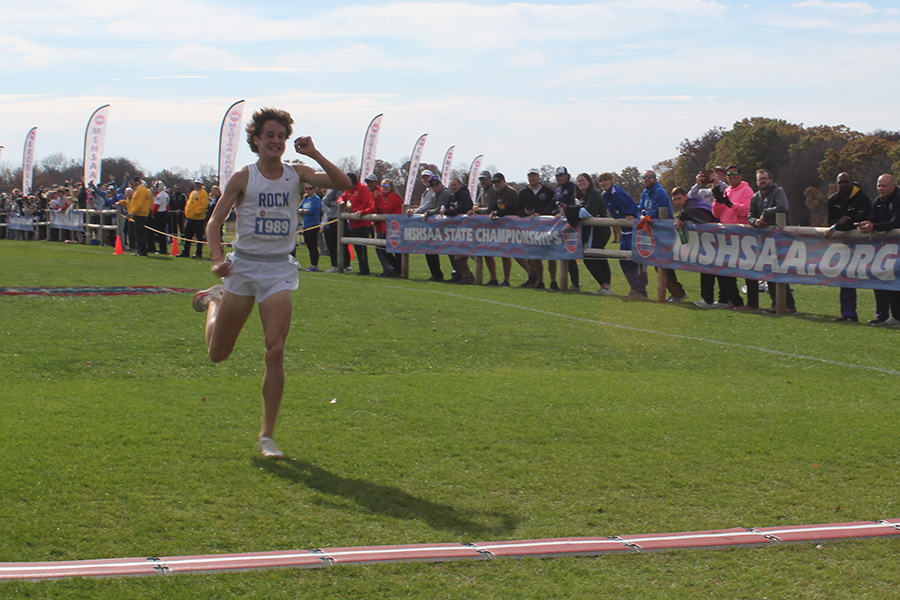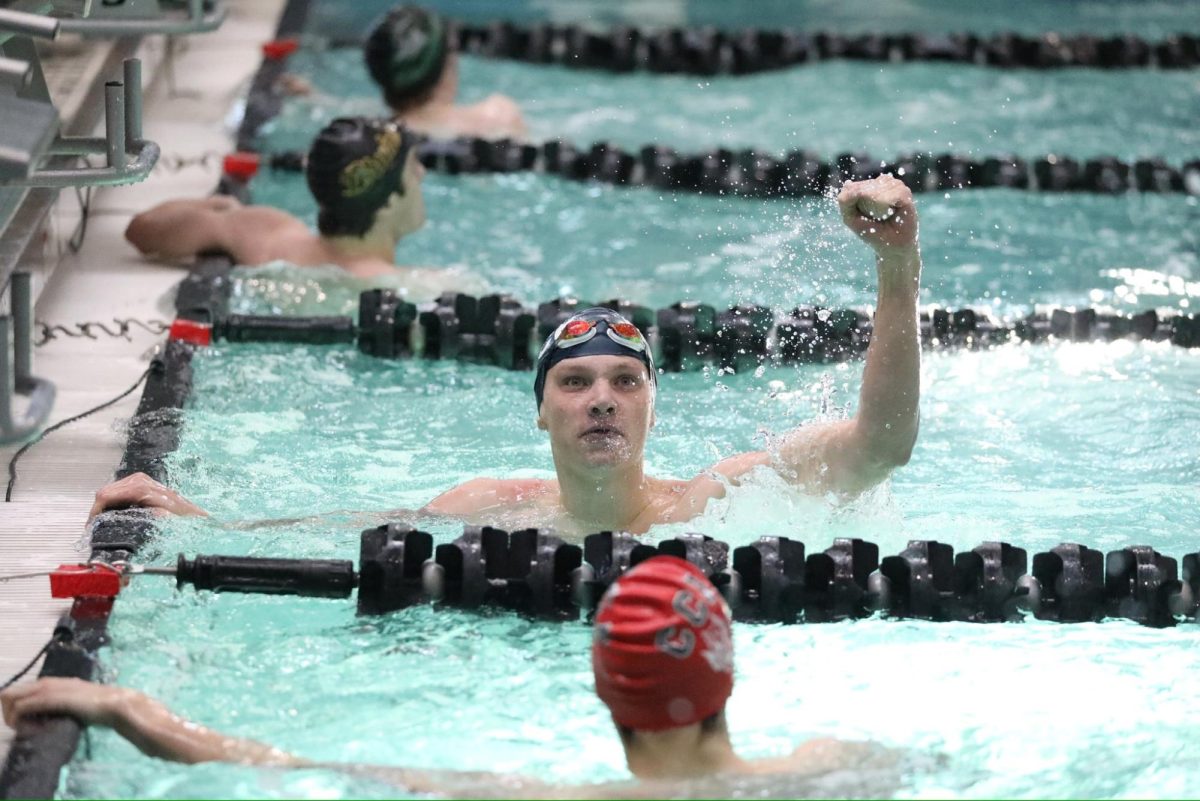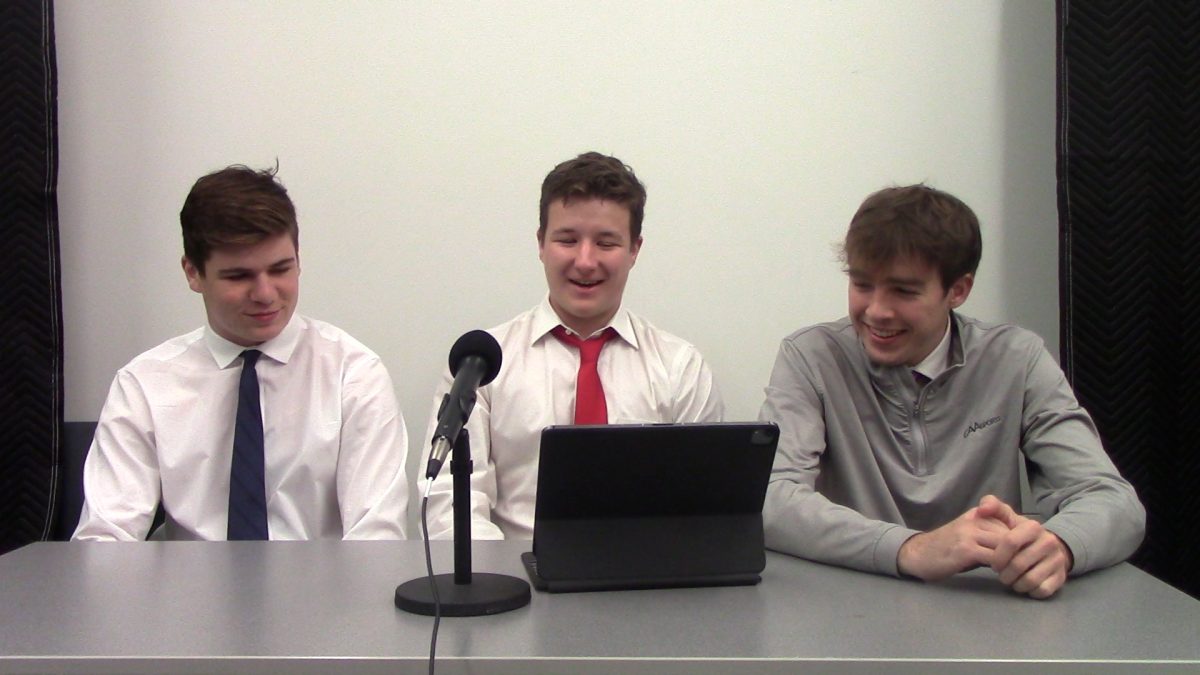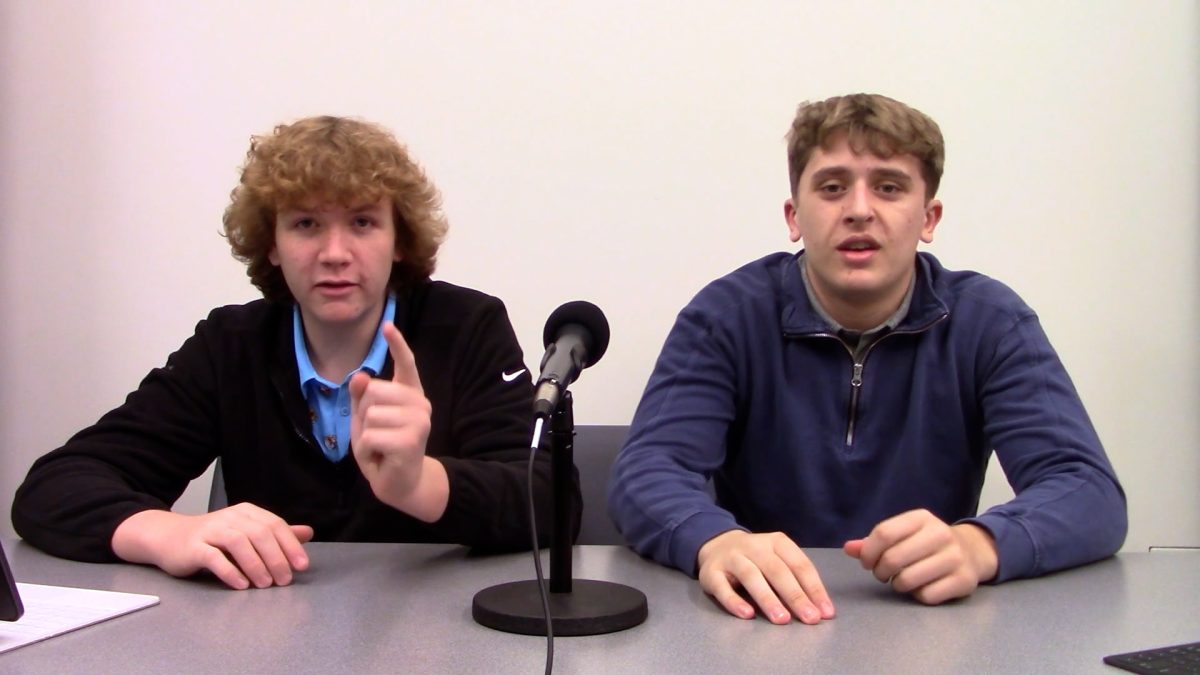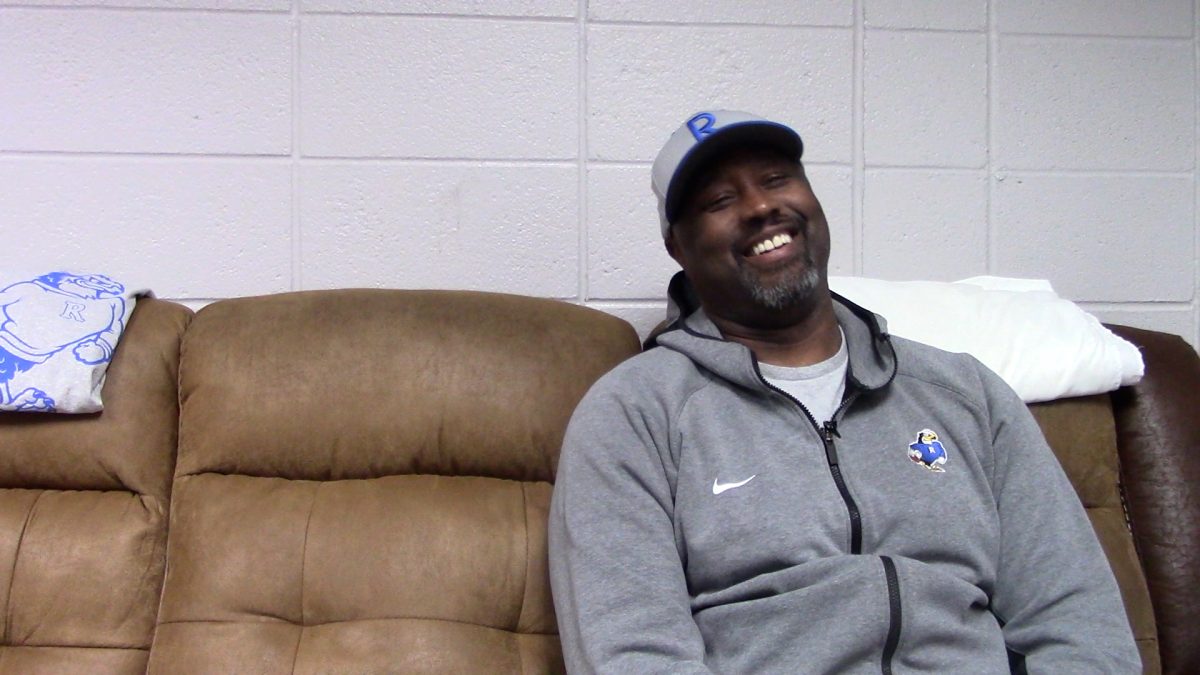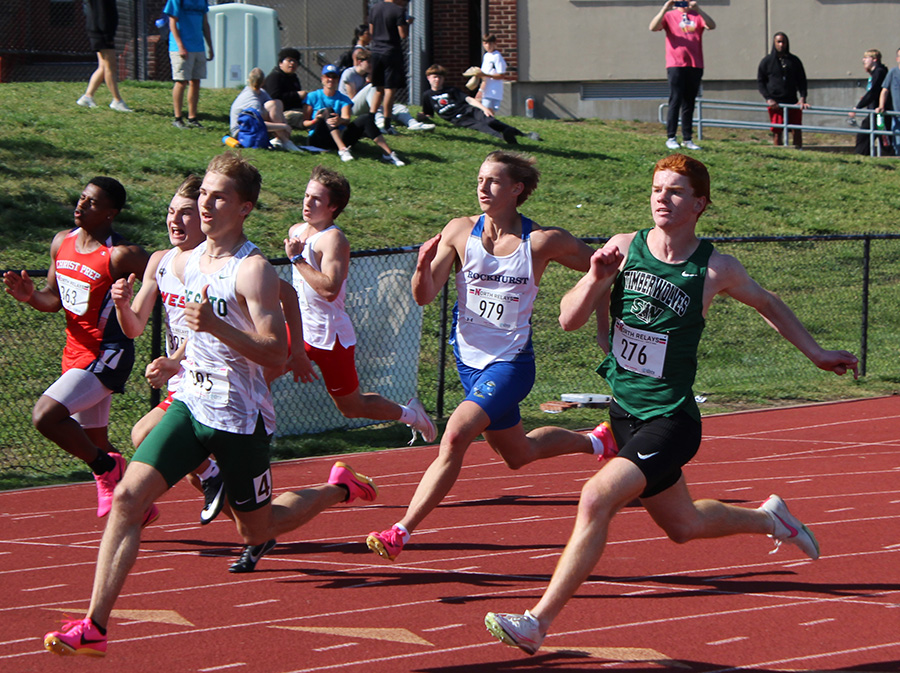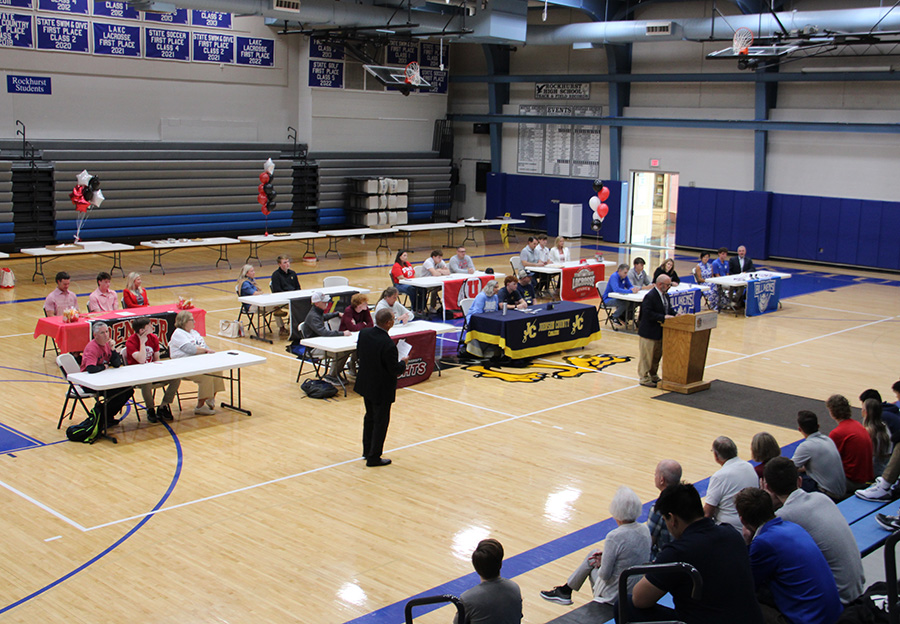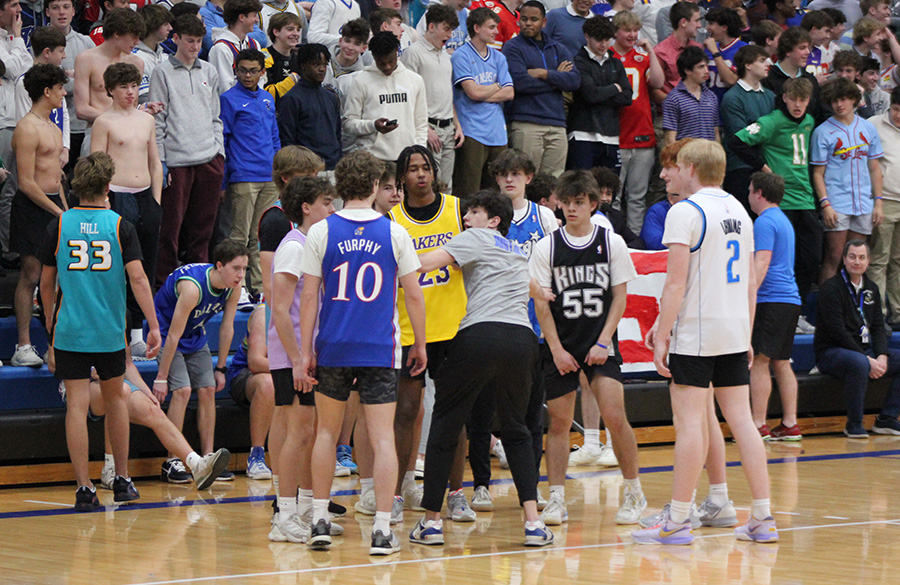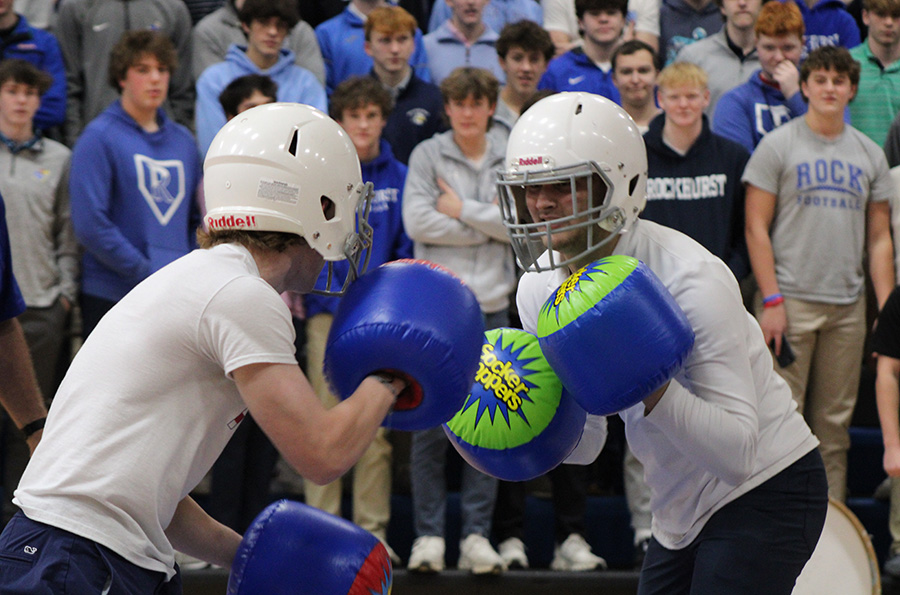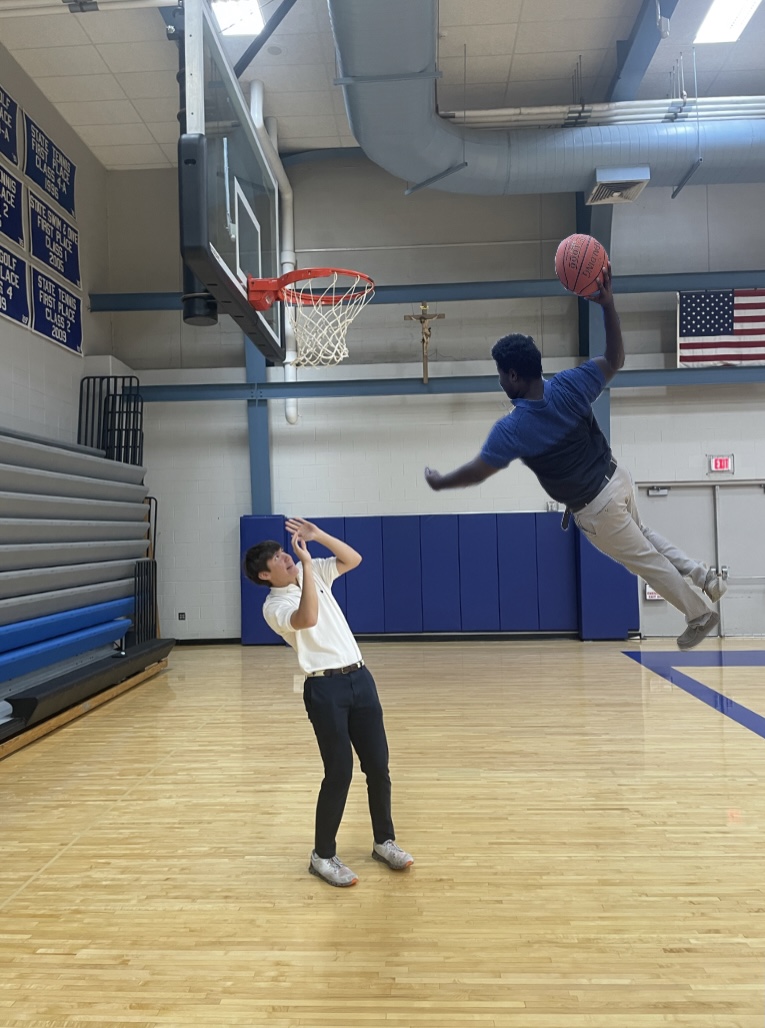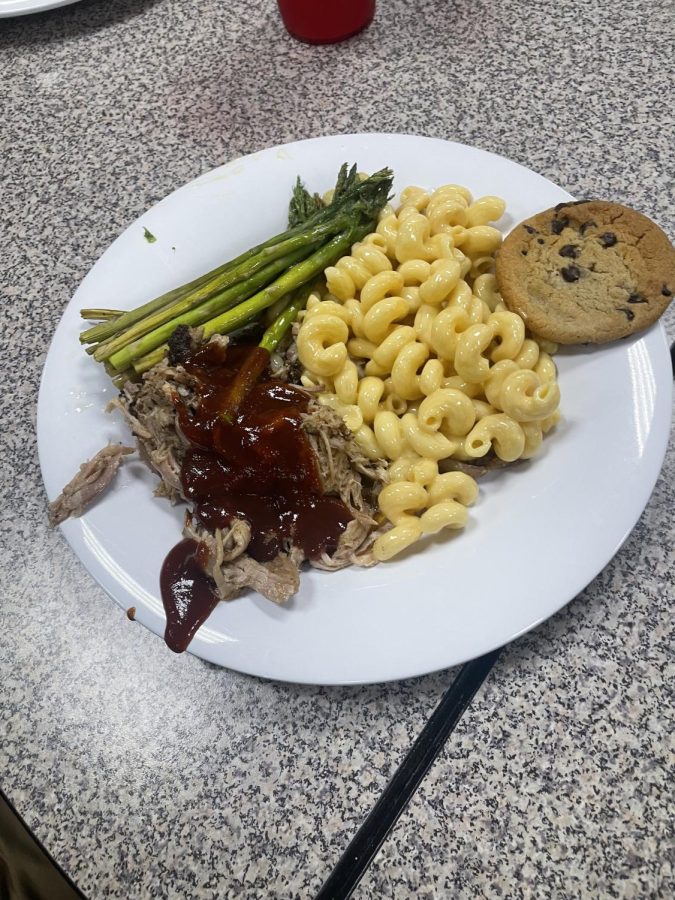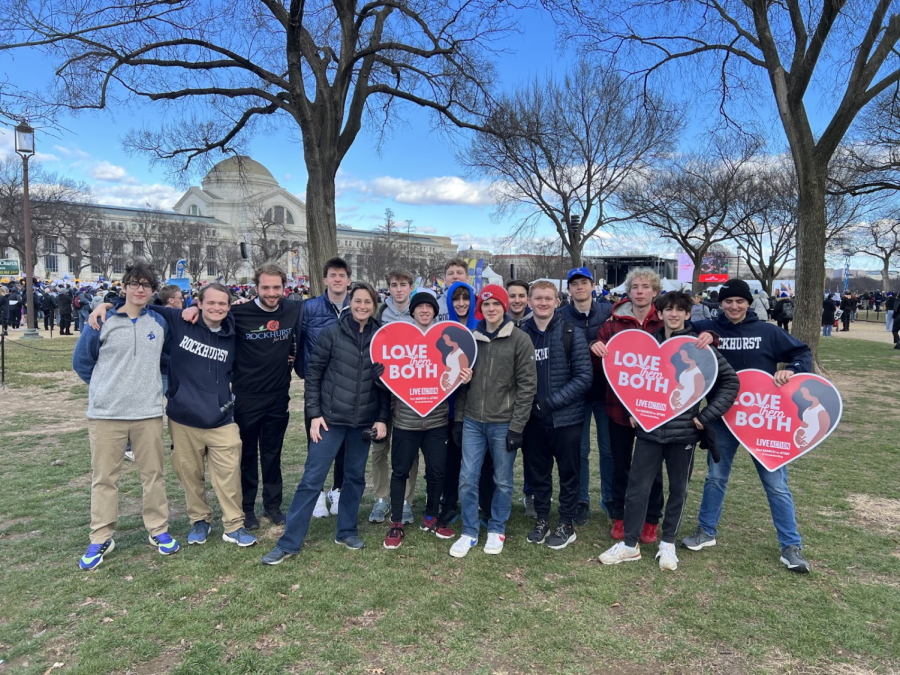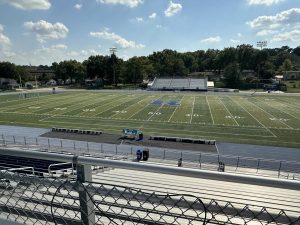At Transition Moment for Movement, Pro-Life Club Marks 50th March for Life
With Roe v. Wade overturned this past summer, Rockhurst students continued to march with renewed purpose, advocating for legal protection for the unborn.
February 9, 2023
Half a century. That’s how long those in the Pro-Life Movement made the annual trip to Washington, D.C., for the annual March for Life. This past month, on January 20, the March marked its 50th anniversary in Washington, though the 1973 ruling the March for Life grew out of—Roe vs. Wade, which legalized abortion nationwide—did not mark its own, struck down months earlier in June by the Dobbs decision.
Under this backdrop of Roe’s overturning, and with abortion policy essentially returned back to the states, Rockhurst once again took a delegation to the March for Life, bringing together 15 students and two faculty members to advocate for the Pro-Life cause.
“[Going on the March] itself shows that we do care,” said senior Liam Hayes, president of the Pro-Life Club at Rockhurst, “It is our duty as Catholic men for others, specifically to fight for people who cannot fight for themselves.”
While in Washington, Rockhurst’s delegation joined tens of thousands of other Pro-Life marchers from all around the nation, giving encouragement and new energy to the Rockhurst students that attended.
“At a certain point, we were walking up to the top of a big hill,” said junior Drew McGalliard, “I was with three other guys. We looked back, and just seeing the sheer amount of people coming and everyone there for the March was crazy.”
Before the March, started, however, the Rockhurst delegation joined other marchers at a pre-March rally, featuring a diverse range of speakers from Jonathan Roumie, the actor who plays Jesus on the TV show, “The Chosen,” to Pro-Life and Down Syndrome advocate Casey Gunning, and even NBC Sports’ Tony Dungy.
For sophomore Joseph Douglas, the overall experience couldn’t be matched.
“It went great. They were both super fun, the rally and the March. The speakers were amazing this year, and the March itself was awesome, because I saw a few friends from other schools in Kansas City.”
In years past, to achieve their objective of legal protection of the unborn, many Pro-Life advocates focused on the judicial aspect of abortion, putting much of their efforts into overturning the Roe decision. After finally achieving that goal this past summer, the goals have shifted somewhat, towards both state and national legislative action.
Reflecting this change, the March organizers no longer ended the March at the Supreme Court building, where the March traditionally closed, but rather in between both the Supreme Court and the U.S. Capitol building, to “help [legislators] understand that [the Pro-Life Movement] will not cease advocating for women and children until every life is protected.”
For some on the delegation, however, the legislative aspect of abortion is important, but doesn’t quite meet the end goal of ending abortion. For them, that can only be done by making the act of abortion itself unthinkable in the first place.
“[Abortion] remains the main civil rights issue of our time in terms of the vulnerability of the victim and the scope of the violence, but the main goal never was the laws,” said Dr. Megan Caughron, English teacher and Rockhurst Pro-Life Club co-moderator. “The main goal has always been a restoration in the hearts and minds of the American people of the value of human life, the lives of these most vulnerable, and the upstream issue of the nature of human respect, human response, and our responsibility in terms of our love for each other.”
To achieve this goal, the Pro-Life Movement is looking to branch out its efforts from a focus on the national scale, to those of the individual states. Before Roe, states had some leeway to restrict abortion, but still operated under the framework of requiring legal abortion in some way. Now, with Roe gone, the abortion debate rages on in all 50 states, with each one now debating where to set their own abortion policy. To push states in the direction of Pro-Life legislation, the Movement turned towards more localized advocacy.
“I think it’s going to be really important that state organizations match [the national March for Life],” said Matt Nickson, Rockhurst Pastoral Director and moderator of the Pro-Life Club. “It can’t just be like, ‘Hey, we all show up in D.C. and have a fun afternoon rallying together.’ We need to get our act together in our states and put up wise legislation, vote, and convince people of what the truth is about our movement. That it’s not about controlling people—that it really is a movement of love and for all.”
Though the Pro-Life Movement succeeded in overturning Roe, it’s faced some setbacks since last summer, losing ballot initiatives in states from Kentucky to even Rockhurst’s neighboring Kansas, all of which underscores the importance to those in the Movement to build up new Pro-Life grassroots organizations, or strengthen existing ones.
For Nickson, the need for action is now more urgent than ever. Framing the fight to end abortion in the lens of a pressing civil rights issue, he believes lessons can be learned from the Civil Rights Movement’s challenges in cultural acceptance of equality, even though the laws technically prohibited acts of discrimination.
“The Civil Rights Act was passed in 1964. Just because things have become unconstitutional in some places, doesn’t mean that acts of injustice and sins don’t take place. The same is true with abortion. Although abortion is no longer a constitutional right, it takes place. We need to illuminate that.”
For the delegation, attending the March shows not only Rockhurst students’ continued commitment to the Pro-Life cause, even after Roe’s overturning, but in a deeper way, their unique responsibilities as men in the Pro-Life Movement—both to a mother and her child—said Caughron.
“We need to change the normalcy of men thinking it’s acceptable to walk away from their responsibilities to the child they helped bring into the world. We need men’s help. We need the help of people to realize the significance of the individual human lives they create.”
For McGalliard, the Pro-Life movement in general, and especially at Rockhurst, isn’t going anywhere anytime soon.
“Us going on the March alone shows that it’s not like just ‘Poof we’re gone’ just because Roe v. Wade was overturned. Our [attending the March] shows Rockhurst students specifically what’s going on in their communities, and helps make them aware of where they stand [on being Pro-Life].”


